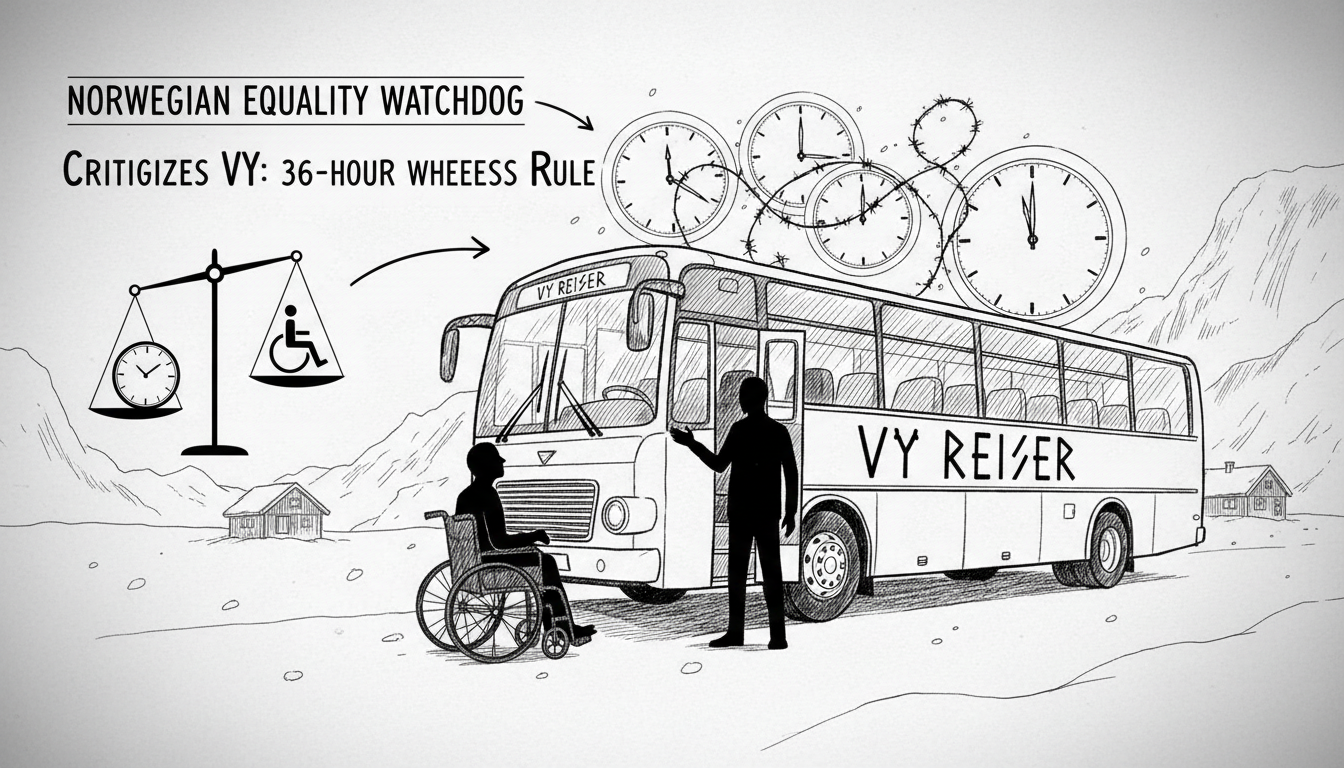Norway's Equality and Anti-Discrimination Ombud has strongly criticized national transport company Vy for its wheelchair access policies. The watchdog calls the company's requirement for 36-hour advance notice for wheelchair users completely unreasonable. This case emerged after a passenger from Molde, Janne Mauseth, was denied boarding a Vy bus to Førde because she didn't provide sufficient advance notice about her wheelchair use.
The controversy highlights ongoing accessibility challenges in Norway's public transportation system. Vy defends its current practice by pointing to previous rulings from the Discrimination Tribunal. The company maintains that the advance notice requirement helps them prepare adequate assistance for passengers with mobility challenges.
Norwegian law requires equal access to public services for all citizens. The Anti-Discrimination Act specifically prohibits discrimination based on disability. This legal framework makes the ombud's criticism particularly significant for transportation providers across the country.
International readers should understand that Norway typically ranks high in global accessibility rankings. This case represents a notable exception in a country known for progressive social policies. The situation raises questions about how even developed nations struggle with practical implementation of accessibility laws.
The 36-hour notice requirement creates practical difficulties for spontaneous travel. Wheelchair users cannot decide on short notice to visit family or attend events. This restriction affects their freedom of movement and participation in daily life.
Transport companies face legitimate operational challenges in accommodating wheelchair users. They need to ensure proper equipment and trained staff are available. However, critics argue that 36 hours exceeds reasonable preparation time for a service that should be readily accessible.
This case could influence transportation policies beyond Norway's borders. Other Nordic countries with similar social welfare models are watching developments closely. The outcome may set precedents for disability rights across Scandinavia.
The Molde incident demonstrates how accessibility issues affect real people in their daily lives. Janne Mauseth's experience shows that legal protections mean little without practical implementation. Her case has drawn attention to a systemic problem affecting many Norwegians with mobility challenges.
What happens next could shape disability access standards throughout the Nordic region. The ombud's position carries significant weight in Norwegian policy discussions. Transportation companies may need to reconsider their accessibility protocols across Scandinavia.

